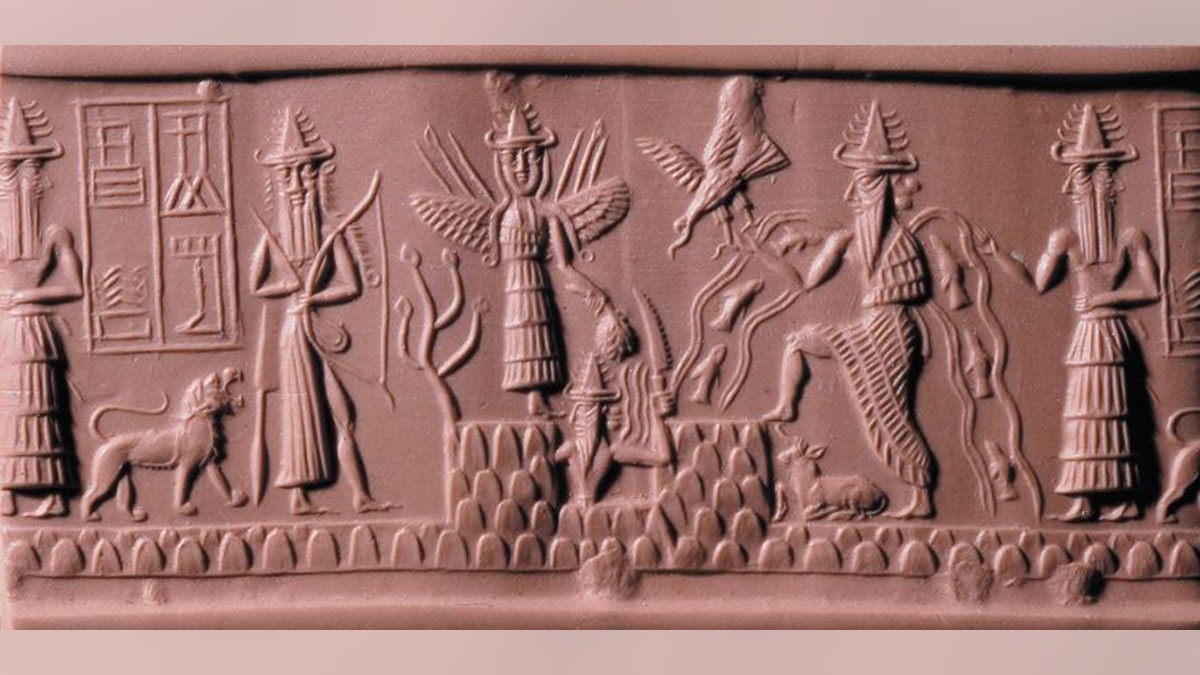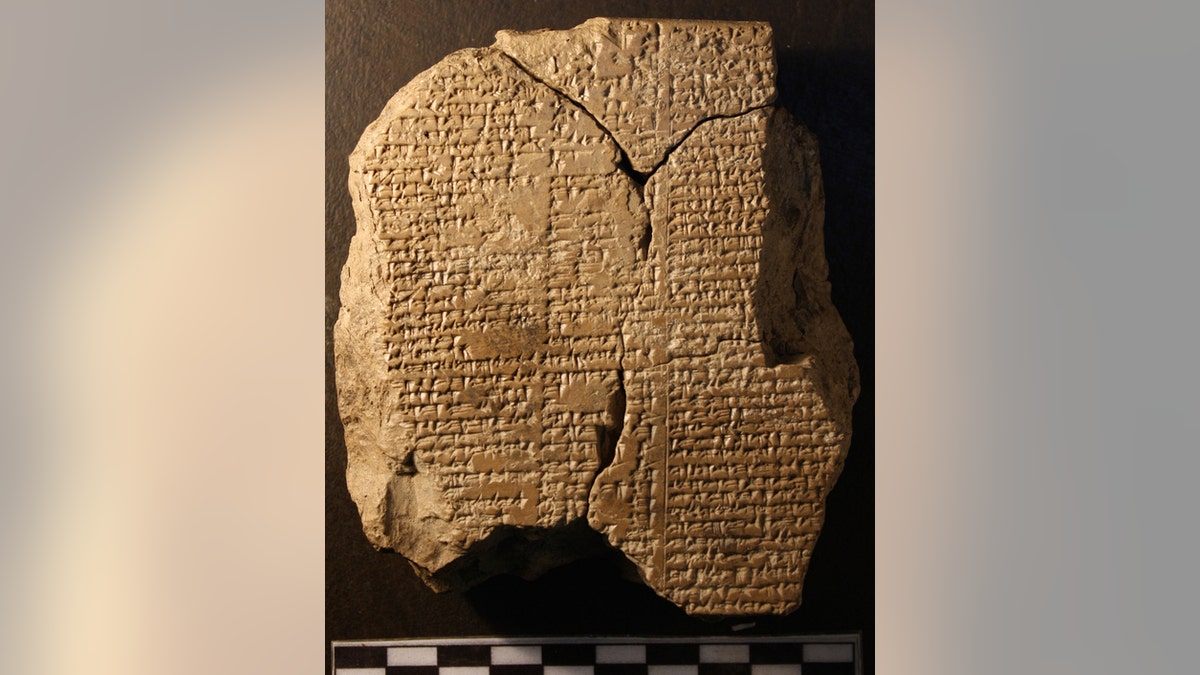Fox News Flash top headlines for Nov. 26
Fox News Flash top headlines for Nov. 26 are here. Check out what's clicking on Foxnews.com
A scholar at the University of Cambridge in the U.K. has suggested that the "earliest ever example of fake news" exists in a 3,000-year-old Babylonian tablet that describes the story of Noah and the Ark, widely believed to be the inspiration for the Biblical story.
Researcher Martin Worthington notes that nine lines in the clay tablets that tell the story of the Gilgamesh Flood can be understood in several different ways, thanks to deceitful language from the Babylonian god called Ea, whom he believes was motivated by self-interest.
“Ea tricks humanity by spreading fake news," Worthington said in a statement. "He tells the Babylonian Noah, known as Uta–napishti, to promise his people that food will rain from the sky if they help him build the ark. What the people don’t realize is that Ea’s nine-line message is a trick: it is a sequence of sounds that can be understood in radically different ways, like English ‘ice cream’ and ‘I scream’."

The Adda Seal featuring the god Ea second from the right Credit: The Trustees of the British Museum
PONTIUS PILATE-COMMISSIONED 'LOST' ROAD TO TEMPLE MOUNT UNCOVERED
“While Ea’s message seems to promise a rain of food, its hidden meaning warns of the Flood," Worthington added. "Once the ark is built, Uta–napishti and his family clamber aboard and survive with a menagerie of animals. Everyone else drowns. With this early episode, set in mythological time, the manipulation of information and language has begun. It may be the earliest ever example of fake news.”
According to the statement, Worthington is an assyriologist who "specializes in Babylonian, Assyrian and Sumerian grammar, literature and medicine."
The two lines in question from the flood story in Babylonian are:
ina šēr(-)kukkī
ina lilâti ušaznanakkunūši šamūt kibāti
A positive-sounding interpretation:
At dawn there will be kukku-cakes,
in the evening he will rain down upon you a shower of wheat.
A negative interpretation from the poem:
By means of incantations,
by means of wind-demons, he will rain down upon you rain as thick as (grains of) wheat.
Another negative interpretation:
At dawn, he will rain down upon you darkness,
(then) in (this) pre-nocturnal twilight he will rain down upon you rain as thick as (grains of) wheat.
The ancient epic poem of Gilgamesh is widely believed to be among the earliest known works of literature and the second oldest religious text. The Gilgamesh Flood story is known from clay tablets that date back approximately 3,000 years, including the Flood Tablet, discovered by Assyriologist George Smith in 1872. It is currently located at the British Museum.

This clay tablet in inscribed with one part of the Epic of Gilgamesh. It was most likely stolen from a historical site before it was sold to a museum in Iraq. (Farouk Al-Rawi)
'HOLY STAIRS' CLIMBED BY JESUS BEFORE CRUCIFIXION OPENS FOR FIRST TIME IN 300 YEARS
Upon discovery, Smith realized the tablet told the same tale as Noah and the Ark in the Biblical book of Genesis. There were some differences, including more gods involved in the tablet story, and a different name for the Babylonian hero, but " the two stories were recognizably the same," the statement from the University of Cambridge added.
Worthington noted that Ea may have lied in the Gilgamesh Flood story for one simple reason: it benefited him.
“Babylonian gods only survive because people feed them. If humanity had been wiped out, the gods would have starved," Worthington added. "The god Ea manipulates language and misleads people into doing his will because it serves his self-interest. Modern parallels are legion!”

